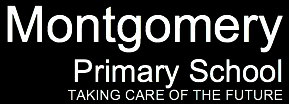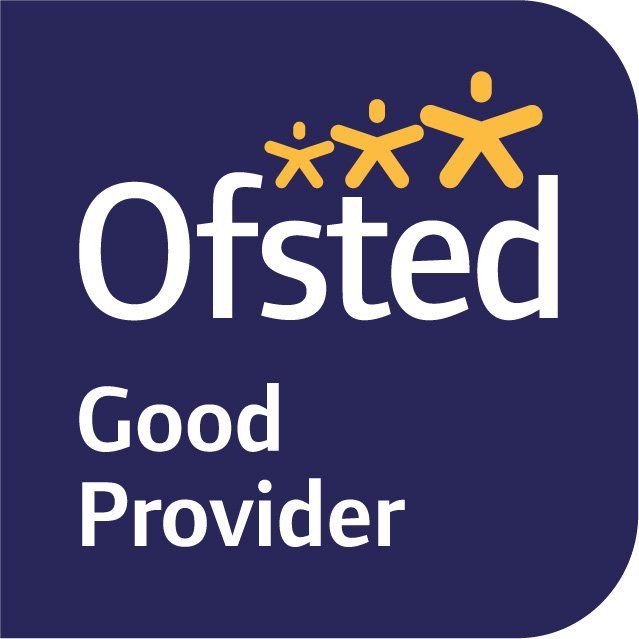Special Education Needs

SEN Information Report, September 2016
What sort of school is Chestnut Nursery School?
Chestnut Nursery is a maintained Nursery school with up to 120 pupils on roll. There are 3 children currently receiving SEN support (October 2016) At Chestnut Nursery we are committed to offering an inclusive curriculum to ensure the best possible progress for all of our pupils whatever their needs or abilities. http://www.ofsted.gov.uk/inspection-reports/find-inspection-report/provider/ELS/134171
Chestnut Nursery School accepts pupils from ages 2 to 5. We are federated with both Wynstream Primary School and Montgomery Primary School.
The Nursery Plus provision, which supports Early Years pupils who are delayed in their development, is based at Chestnut Nursery. It also provides outreach to local settings. In respect of the Code of Practice (CoP) for SEN, the local authority has a duty to publish arrangements for SEN support in schools. This is called the Local Offer and includes information about the provision that can be expected for children and young people 0-25 with SEN across education, health and social care. Use the link below to find out about the Devon local Offer.
No child applying to Chestnut Nursery will be treated unfavourably due to disability as defined by The Equality Act 2010
What type of special educational needs do pupils currently at Chestnut Nursery experience?
We support a wide spectrum of special educational needs and disabilities which include high numbers of pupils with Speech, Language and Communication needs (SLCN) and Social, Emotional and Mental Health needs and fewer numbers of pupils experiencing cognition and learning difficulties and physical and sensory needs.
The progress of all pupils with SEN support is closely monitored termly by Yasemin Jeffrey who is a qualified SENCO accredited Special Educational Needs Coordinator (SENCO). This is achieved through meetings with the Lead Teacher individually and reviewing the SEN support to ensure it meets individual pupils' needs.
Parents can talk to the SENCO or the Lead Teacher about their concerns for their child. The SENCO or Lead Teacher consults with parents, children and teachers to establish the main needs of a pupil and assesses whether these needs can be met through support within the nursery and differentiation of activities.
How does the nursery school know if children/young people need extra help?
The SEN team (school SENCO, safeguarding officer and assistant SENCO) and Lead Teacher are responsible for identifying pupils who need SEN support. Information is gathered through processes in place to raise concerns in a number of ways which include;
- Lack of progress in the EYFS children
- Concern following 2 yer progress check reports from Health Visitors
- Parental concerns
- Concerns following 'Let s talk more' speech and language screening
- Following up on concerns raised by teacher and learning support assistants regarding individual children
- Information gathering through observations, assessments, transition meetings and nursery plus reports
- Reports from outside agencies including medical letters, occupational therapy reports, health visitors reports and speech and language reports
Assessments used to identify learning difficulties include:
- Teacher assessment
- Regular assessments and observations on children
- Statement of growth schedules from Health visitors
- Assessment by Educational Psychologist
- Speech and Language assessment
- Occupational therapy assessment
- Assessment of social and emotional needs through the Thrive assessments
We will also refer to the community nurses team for hearing checks when parents or teachers are concerned about this.
We use a number of outside agencies to advise us on meeting childrens' needs including;
- Educational Psychology Service
- Speech and Language Therapy
- Occupational Therapy
- Health Visitors team
- Communication and Interaction Team
- Deaf and Hearing Impairment Team
- Honeylands Assessment Centre
What should I do if I think my child may need extra help at school?
If you believe your child needs extra help and would like to discuss this with nursery you can speak to your child's Nursery teacher in the first instance. Teachers are happy to speak to parents at the beginning or the end of the day but you may want to arrange a longer meeting after school. You may wish to discuss your concerns with the school SENCO or Nursery Lead Teacher who can be contacted on 01392 284996 or by email yjeffrey@wynstream.devon.sch.uk
or cboxall@wynstream.devon.sch.uk
and would be happy to discuss your child's needs and suggest next steps.
How will the school and I know how my child is doing?
If your child has SEN support, his/her progress will be reviewed with the SENCO or Lead Teacher through progress dialogue meetings every term. Parents can access their child's progress through their tapestry log-in or with their child's teacher at any time.
Parents can also contact the SENCO if they are concerned about their child's progress and arrange a meeting if appropriate.
If your child's needs are more complex and a multiagency approach is needed, the school may start a DAF process (Devon Assessment Framework) for your child with your full involvement from the beginning. Desired outcomes are agreed and recorded on a DAF2a- My Plan and progress towards agreed outcomes will then be reviewed through Team Around the Child (TAC) meetings at least three times a year.
Those children with statements of special educational needs or Education, Health and Care Plans (EHCP) will also have their child's progress reviewed through a statutory review meeting every year. During the meeting plans are made and targets set to meet the needs of individuals for the next 12 months.
What sort of extra support might my child have?
At Chestnut Nursery we believe the best support is delivered through accessing high quality teaching as part of the universal provision for all children with the addition of a personalised curriculum to meet an individual's SEND needs. Chestnut Nursery works closely with the Educational Psychology service and Nursery Plus service and other agencies as needed to meet the individual needs of children through reasonable adjustments to the curriculum and the daily routines of nursery. This is planned individually and may include providing key adult support at identified times and small group interventions. Individual emotional and social difficulties are supported through a Thrive/Nurture approach. We work closely with the Children's Centre in providing additional support for families.
How will my child be included in school activities?
All children with SEND are part of the Nursery and have access to Nursery trips, encouraged to join in when visitors come into Nursery. Parents are encouraged to attend family events such as Harvest festival lunch. Halloween celebrations etc. In order to ensure all children's health and safety, risk assessments have to be completed for all off-site visits and any individual requirements will be discussed with parents. Nursery staff will discuss and agree with parents how their child can be included whilst taking account of their individual needs.
Who supports children with SEN and disabilities at Wynstream?
All staff at Chestnut Nursery support children with SEND. Across the Federation the following may be involved in supporting your child. but the following may be particularly involved in supporting your child;
Head of Inclusion: Alison Betts
Special Educational Needs Co-ordinator (SENCO): Yasemin Jeffrey
Safeguarding Lead: Stuart Fraser
HLTA Speech and Language: Nicola Phillips
Governor with responsibility for SEN: Teri-Anne Hornby
Educational psychologist: Lata Ramoutar/ Catherine Dunnett
Speech and Language therapist: Emma Black
Area SENDCo
Nursery Plus Team
The SENCO, Yasemin Jeffrey is a qualified teacher and has achieved the National Award in Special Needs Coordination. She has many years of experience working with children and young adults with SEN in a variety of settings.
SENCO's contact details;
Yasemin Jeffrey yjeffrey@wynstream.devon.sch.uk
or phone on 01392 284996
Lead Teacher: Cathryn Boxall cboxall@wynstream.devon.sch.uk
or phone on 01392 690418
How is the school equipped to meet the needs of children with SEN and disabilities?
Chestnut Nursery is housed within the Children's Centre and situated on a large and green site. Security and safety is ensured through secure key access through the main entrance nursery doors. The Children's Centre is fully wheelchair accessible with disabled toilets and changing facilities. The Nursery is accessed through a wide secure door and is on one level. There are 2 sets of children's toilet and changing facilities on site. The Nursery has extensive outside area which is both paved and includes a large area of garden with fruit trees. The outside area has with a wide path all the way around.
How are parents involved in the school?
At Chestnut Nursery we recognise the importance of listening to parental concerns and aim to understand and listen to your concerns about your child and to act on any concerns regarding progress and development effectively. Nursery teachers are available to deal with these concerns however the SENCo or Lead Teacher are also available. Small specialist items of SEN equipment are offered purchased to support individual's needs.
Parents are warmly invited to their child's learning, events and other performances.
How can I get more information about SEN in Exeter and Devon?
Devon Information Advice and Support (DIAS) www.parentpartnershipdevon.org.uk
provide general advice and support on many aspects of education of children with SEN and disabilities and can be of particular help at times of transition from primary to secondary school.
The support provided by Devon Local Authority for children with SEN and disabilities can be found in https://new.devon.gov.uk/send
Teachers and the SENCO can direct parents to other organisations and services that can provide additional support for SEN.
What should I do if I am worried or unhappy about the support my child is receiving in school?
At Chestnut Nursery we are committed to working with parents to meet each child's SEND needs fully. There are however times when we don't get it right and we need to know about it. You are encouraged to contact the class teacher or the SENCO in the first instance to discuss any worries or concerns. You can also contact the Head of School Gill Brown or Head of Inclusion Alison Betts to arrange a time to discuss your concern. If you still feel concerned you can contact the Governor responsible for SEN, Teri-Anne Hornby by letter.
Devon Information Advice and Support (DIAS) https://www.devonias.org.uk can advise parents on how to proceed if they feel their concerns are not being adequately addressed by the school or the Local Authority.
N.B. In the above document the term "parents "is taken as covering those adults with parental responsibility for the child including guardians and carers
Appendix A
Staff Training and Expertise 2015-2016
Speech, Language and Communication Needs
- 7th June 2016- Speech Link/ Language Link Package Update training
- Devon Enhanced Autism Programme starting 5th July 2016
- Specialist Speech and Language Higher Level Teaching Assistant
- Autism Trained Teaching Assistant
- Autism Trained Higher Level Teaching Assistants
- In addition we have trained teaching assistants in each unit delivering Language Link interventions
Cognition and Learning
- Qualified Dyslexia Specialist Teacher
- Counting to Calculating trained Teaching Assistant
- ARROW 2x trained Teaching Assistants
- Springboard maths trained Teaching Assistant
Social, Mental, Emotional Health
- PIPS training- all staff
- Attachment based mentoring course- al l teachers and a number of support staff
- Thrive- Power and Play; SENCO
- Thrive Practitioner
- Key Stage 1 trained Nurture Group leader Higher Level Teaching assistant
- Nurture Group trained Teaching Assistant
- Attachment based mentors
Physical and Sensory
- FunFit teacher
- Visual Impairment trained Higher Level Teaching Assistant
- In addition individual teaching assistants are trained to support physiotherapy programmes and sensory breaks when needed.
- Maintenance and cleaning of hearing aids training- staff in specific classes working with children wearing hearing aids
- Epilepsy training- all EYFS staff and staff in individual classes as appropriate


